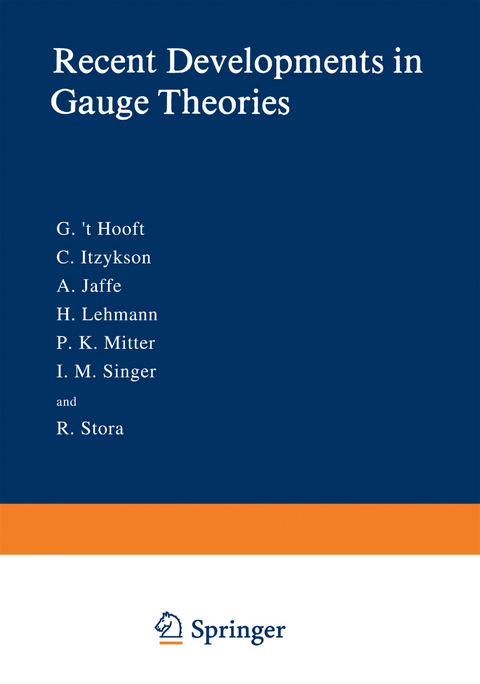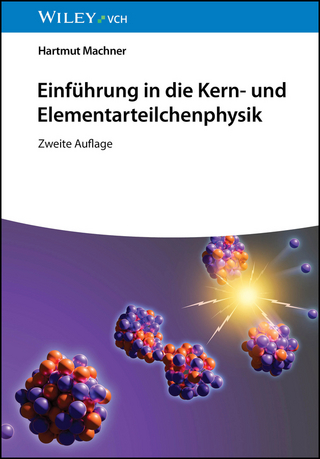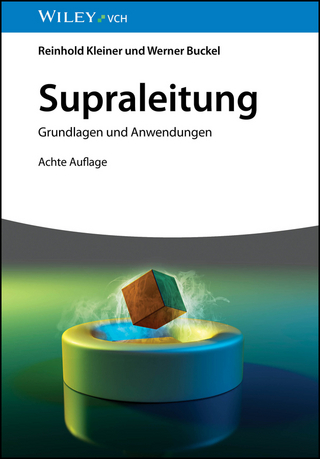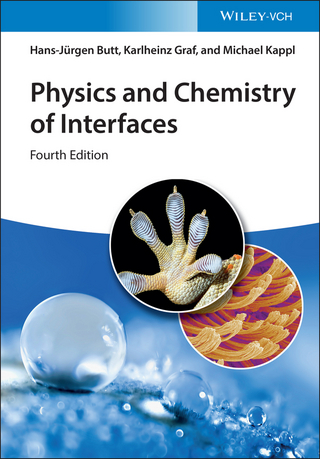
Recent Developments in Gauge Theories
Springer-Verlag New York Inc.
978-1-4684-7573-9 (ISBN)
Remarks on Morse Theory.- Morse Theoretic Aspects of Yang-Mills Theory.- A Semiclassical Approach to the Strong Coupling Physics of QCD.- Lattice Gauge Theories.- Some Results and Comments on Quantized Gauge Fields.- String States in Q C D.- Why Do We Need Local Gauge Invariance in Theories with Vector Particles? An Introduction. (Lecture I).- Which Topological Features of a Gauge Theory can be Responsible for Permanent Confinement? (Lecture II).- Naturalness, Chiral Symmetry, and Spontaneous Chiral Symmetry Breaking. (Lecture III).- to Lattice Gauge Theories.- Classical Gauge Theories and Their Quantum Role.- The Coupling Constant in a Ø4 Field Theory.- Exact Instanton Gases.- Properties of Lattice Gauge Theory Models at Low Temperatures.- Geometry of the Space of Gauge Orbits and the Yang-Mills Dynamical System.- On the Strgcture of the Phases in Lattice Gauge Theories.- Superalgebras and Confinement in Condensed Matter Physics.- Cutoff Dependence in Lattice $$ {/mathop /phi /limits_4 ^4}$$ Theory.- Gauge Concepts in Condensed Matter Physics.- Monte-Carlo Calculations for the Lattice Gauge Theory.- The 1/N Expansion in Atomic and Particle Physics.- Generalized Non-Linear a-Models with Gauge Invariance.
| Reihe/Serie | NATO Science Series: B ; 59 |
|---|---|
| Zusatzinfo | VIII, 438 p. |
| Verlagsort | New York, NY |
| Sprache | englisch |
| Maße | 178 x 254 mm |
| Themenwelt | Naturwissenschaften ► Physik / Astronomie ► Atom- / Kern- / Molekularphysik |
| Naturwissenschaften ► Physik / Astronomie ► Elektrodynamik | |
| Naturwissenschaften ► Physik / Astronomie ► Hochenergiephysik / Teilchenphysik | |
| Naturwissenschaften ► Physik / Astronomie ► Mechanik | |
| Naturwissenschaften ► Physik / Astronomie ► Optik | |
| Naturwissenschaften ► Physik / Astronomie ► Quantenphysik | |
| Naturwissenschaften ► Physik / Astronomie ► Theoretische Physik | |
| ISBN-10 | 1-4684-7573-8 / 1468475738 |
| ISBN-13 | 978-1-4684-7573-9 / 9781468475739 |
| Zustand | Neuware |
| Informationen gemäß Produktsicherheitsverordnung (GPSR) | |
| Haben Sie eine Frage zum Produkt? |
aus dem Bereich


